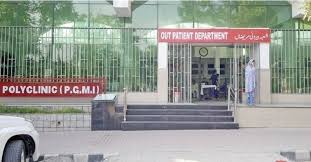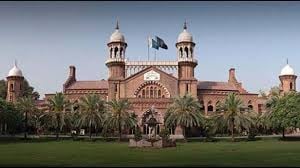For the first time, an anti-rape crisis cell (ARCC) was launched at the Polyclinic Hospital in the Pakistani capital on Thursday, according to the United Nations (UN). This represents a “unified effort” to combat sexual violence and empower survivors.
In recent years, Pakistan has witnessed a significant rise in rape cases, with many incidents going unreported due to social stigma and fear of retaliation. The Pakistan National Commission on the Status of Women reported over 11,000 cases of rape in 2021 alone.
In August 2023, Pakistan’s first-ever anti-rape crisis cell was established at the Karachi Police Surgeon’s Office in the southern Sindh province, followed by another at Nishtar Hospital in the eastern province of Punjab. Activists and experts have called for increased support and stronger laws for survivors to address this pressing issue.
“The federal government’s Polyclinic Hospital, with technical support from UN Women and funding from the US Embassy’s Office of International Narcotics and Law Enforcement (INL), has launched the ARCC at Polyclinic Hospital in Islamabad,” UN Women said in a statement.
These facilities are intended to serve as crucial resource centres, offering a range of services to survivors, including medical and psychological support, legal aid, and counselling. The ARCC is set to operate round the clock, with “robust security measures” in place.
The launch event was attended by Dr Naushin Farooq, Head of the Gynaecology Department at Polyclinic Hospital; Saman Ahsan from UN Women; US Embassy official Carrie Basnight; Dr Sophia Younas, Deputy Director at the Ministry of National Health Services; and Anti-Rape Special Committee Chairperson Senator Ayesha Raza Farooq, among others.
“ARCCs are vital pillars in our collective efforts to combat sexual violence and ensure the rights and well-being of rape survivors,” said Ahsan. “By providing comprehensive services and support, these cells play a pivotal role in empowering survivors to reclaim their lives and seek justice.”
Basnight, the US official, commended the Pakistani government’s commitment to advocating for the protection of survivor rights.
“I commend the federal government and UN Women for establishing the ARCC,” she said. “Sexual violence is not only a local issue but a global challenge that requires collective action.”
Dr Younas of the Ministry of National Health Services emphasised the Pakistani government’s commitment to eliminating sexual violence and providing extensive support to survivors.
“As we inaugurate Islamabad’s ARCC, we mark a crucial milestone in our unwavering pursuit of justice and safety for all citizens,” she said. “The creation of this crisis cell highlights the government’s dedication and the collaborative efforts of various stakeholders in our ongoing fight against sexual violence.”
UN Women stated that the launch of the facility in Islamabad represents a “significant advancement in the quest for justice and support” for survivors of sexual assault.













